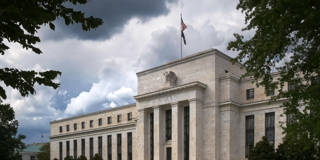OnPoint Subscriber Exclusive
The Big Picture brings together a range of PS commentaries to give readers a comprehensive understanding of topics in the news – and the deeper issues driving the news. The Big Question features concise contributor analysis and predictions on timely topics.

The Long Life of Inflation
With annual inflation having slowed to 3% in June – the lowest rate since March of 2021 – one might believe that the US Federal Reserve has managed to steer the United States out of the inflationary woods without triggering a recession. But the Fed has continued to raise policy rates, with a 25-basis-point hike last month pushing its benchmark federal funds rate to a 22-year high.
According to Michael R. Strain of the American Enterprise Institute, the Fed is right to keep raising rates, because “underlying inflation is still double the Fed’s target” and “financial conditions aren’t tightening as much as people assume.” It should continue to raise rates until “there is clear evidence that core inflation is on a path to its 2% target,” even if that makes recession more likely.
Mario I. Blejer, a former president of the Central Bank of Argentina, and Piroska Nagy Mohácsi of the London School of Economics and Political Science also see serious risks on the horizon, in the US and beyond. With the world’s major economies “still grappling with distorted incentives and massive inherited imbalances” – fueled partly by populist governance and central-bank interventionism – “any celebration of progress in combating inflation must be cautious indeed.”
While Harvard’s Jeffrey Frankel agrees that “the chances of a recession” in the United States “are much higher now, owing to the Fed’s rapid interest-rate hikes,” he would “put the likelihood of one happening in the next 12 months at less than 50%.” The reason is simple: “inflation need not reach 2% immediately.” By “stabilizing inflation at 3-4%, with 2% as a longer-term goal,” the Fed can avoid “the social costs of a serious contraction.”
But perhaps the Fed is getting too much credit. “There is no way, under any theory or precedent, that rate hikes beginning in January 2022 could have knocked back inflation by July of the same year,” argues James K. Galbraith of the University of Texas at Austin. In fact, current macroeconomic conditions warrant the opposite response: not just “cutting interest rates,” but also “strengthening fiscal support for household incomes and well-paying jobs.”